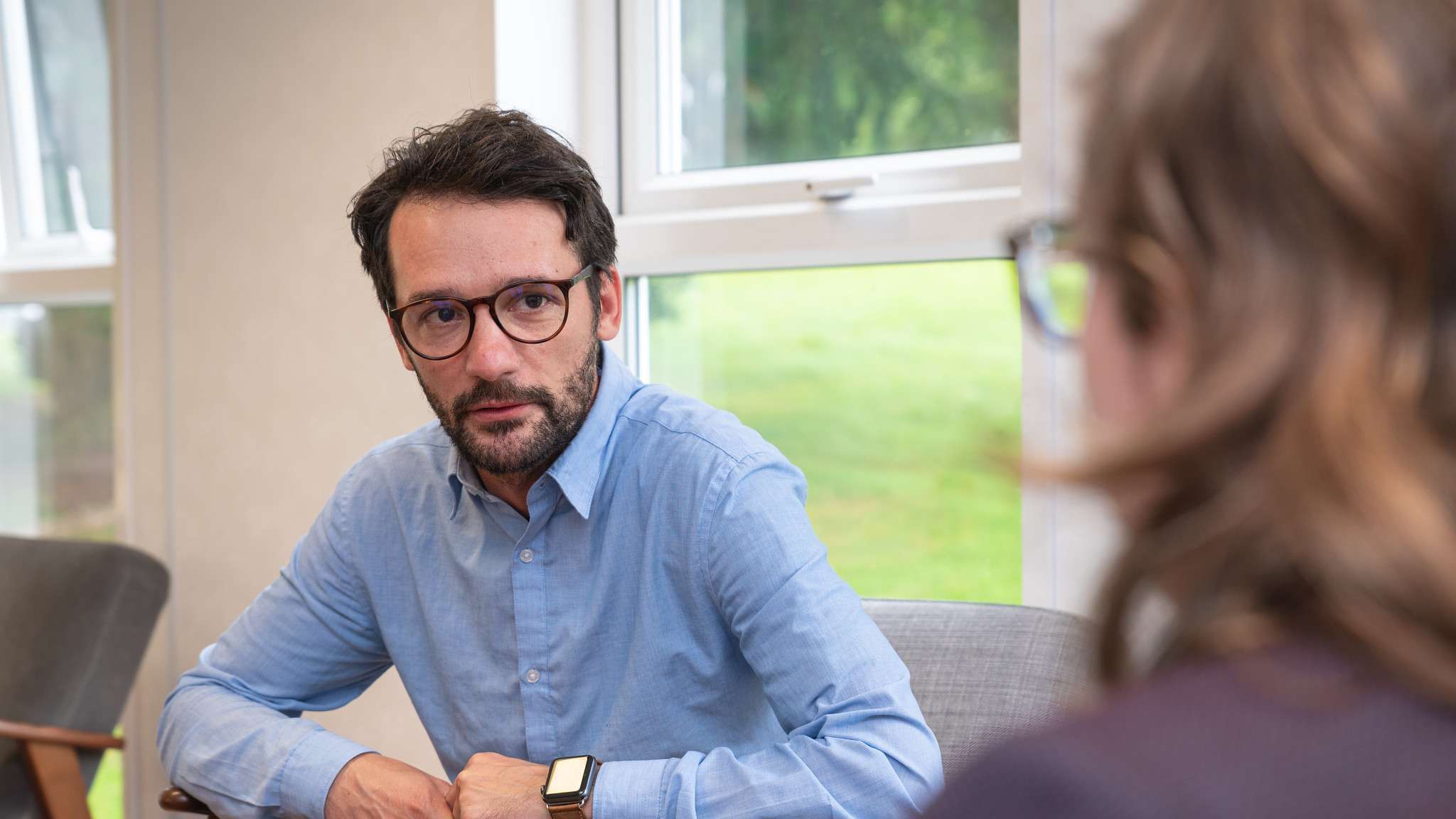Table of Contents

Download Our Brochure
Do drugs make you more creative and boost productivity? People have been arguing about this age-old question for decades. There are convincing anecdotes from both sides, including creative geniuses who cited alcohol and drugs as part of their success, as well as those who eventually ended up addicted.
For those interested in a creative life, it’s a big question to answer. Could substances or alcohol break through writer’s block or inspire a masterpiece? Or will it numb and dampen your creative output?
Ponder no more – it seems like science might have found the answer once and for all. In this article, we’ll look at why the notion drugs and alcohol boost creativity is such a culturally pervasive idea. We’ll then dig into the latest research and uncover what impact substance use has on creativity. The article will wrap up with a section on other, less destructive, methods for boosting creativity and take a look at the role creativity can play in recovery.

Drugs, Alcohol and Creativity: A Pervasive Idea
Whether or not there is any merit to the idea that alcohol and drugs can make you more creative (and we’ll get to that shortly), it is a deeply ingrained belief in our culture nonetheless.
There is certainly no shortage of tales of highly successful creatives using drugs or alcohol. Oscar Wilde was partial to absinthe, there are tales of Ernest Hemingway drinking nearly a bottle of rum in one day and Hunter S Thompson had a pre-writing routine involving cocaine, Chivas Regal, and acid.
It’s not just famous writers who are partial to substance misuse. Painter Vincent Van Gogh is said to have dabbled, artist Andy Warhol was addicted to prescription drugs, and singer Jim Morrison suffered from alcohol dependency.
And it seems these infamous cases of wildly successful creatives using alcohol or drugs have lodged themselves in our collective consciousness. So it’s easy to see why the idea of drug and alcohol misuse resulting in creativity has taken root. And yet, the latest science finds little in the way of concrete evidence to back up this long-standing claim…
Do Drugs Make You More Creative?
New research conducted by The University of Essex and the Humboldt University of Berlin has found that using drugs does not cause creativity.
The meta-analysis, published in Psychology of Aesthetics, Creativity, and the Arts, reviewed the findings of many studies. These included results from thousands of people, in a bid to unearth the mysteries of creativity. The biggest takeaway? Alcohol and drugs failed to influence creativity.
This is the latest blow to the idea that substance misuse can spark creativity. There have been several other studies over the years that have looked at why this cultural notion has become so embedded and why it is misinformed. Here are a few…
People Think Alcohol and Drugs Make Them More Creative
While there is no robust evidence that consuming alcohol or drugs makes a person more creative, people think it does nonetheless.
One study of 40 social drinkers gave some alcoholic drinks and others non-alcoholic drinks. They were then asked to participate in a creative task and then rate their own creativity. The study found: “Those individuals who thought they had received alcohol gave significantly more positive evaluations of their creative performances than did subjects who believed they were in the non-alcohol treatments.”

Substance Misuse Can Actually Harm Creativity
Despite the societal perception that drinking alcohol and consuming drugs will make a person more creative, the reverse is often true. But how do drugs affect the brain? It is well documented in the literature that both alcohol and substance misuse can result in a range of negative physical and mental consequences that may inhibit a person’s ability to be creative. These issues could include, but are not limited to:
- Mental health issues: Mental health disorders, such as anxiety and depression, can wreak havoc on a person’s life and make even the simplest daily activities a chore. If getting out of bed in the morning, showering, and attending a job are difficult, it’s reasonable to say writing a novel or composing music might be beyond the scope of that person’s current ability.
- Disrupting normal brain function: Alcohol and drugs impact cognitive function and can get in the way of normal brain activity. Ironically, this can actually make it harder to be creative.
- Lack of focus: Binge drinking, excessive drug taking, or prolonged use of either can cause a person to have difficulty concentrating. This lack of focus is a disaster when it comes to being creative.
- Inconsistency: Most successful creative people will tell you habit forms the backbone of their success. Without consistent practice over a sustained period, they would not have the experience and skills necessary to succeed. If a person is regularly getting drunk or high, it makes consistency difficult to achieve.
- Risk of addiction: Consuming drugs and alcohol regularly or in excessive amounts can lead to tolerance, dependence, and eventually addiction. Addiction becomes the central focus of a person’s life, so it is easy to see how in this scenario creative endeavours take a backseat.
Fundamentally, drug and alcohol misuse is not linked with a boost in creativity and several of the side effects are actually likely to have the opposite effect.
What Does Enhance Creativity?
While the recently published meta-analysis found that drugs and alcohol did not boost creativity, it also highlighted some of the things that did.
The best option? Complex training programs which highlight mental techniques that unpack the creative process had the best effect over the long term. In the short term, mindfulness activities including meditation and open thinking increased imagination.
Another method it found useful was travelling to different countries and immersing yourself in their cultures. It’s believed this works by unconsciously expanding your horizons. That said, we’re all different and people will likely differ in how they respond to various situations and techniques.

Safe Detox in Comfort
But what about other evidence-backed ways to increase your creativity? It turns out, science has plenty of suggestions. Here are a few tips to try next time you feel stuck in a creative rut…
- Go back to basics: It sounds boring, but the small, everyday stuff matters a lot when it comes to creativity. That means getting good quality sleep, staying hydrated, eating a balanced diet, and taking regular exercise.
- Go for a walk: Struggling to solve a creative problem? Stop and go outside for a walk. One study found people are more creative when they are walking compared with sitting down. We know that regular physical activity keeps cognitive abilities sharp, so it makes sense.
- Daydream: With all the world’s answers a click of the button away, it’s hard to…just do nothing. But sometimes, that’s the best thing you could do. In one study, bored participants were more creative than those who were happy or distressed.
Creativity and Recovery
While alcohol and substance misuse can actually stifle creativity, creativity itself can play an integral role in recovering from addiction.
Creative endeavours, whether that’s therapeutic art, creative writing, psychodrama or drumming therapy, can help people to express painful, shameful or challenging feelings and emotions and help the person in recovery to process and integrate them.
For example, therapeutic art allows a person to explore their life which they may not be able to do so through language alone, ultimately coming to better understand themselves. Engaging with therapeutic art can reduce levels of stress and anxiety, both of which are useful in recovery,
In creative writing, words are used to give meaning to a person’s deepest emotions. This allows a person to organise often chaotic thoughts and make sense of what is going on. In some cases, this may result in a major realisation or breakthrough.

Drumming therapy can work by either listening to or joining in with drumming. It’s actually an ancient practice that has been used for thousands of years to support mental health and research has found it encourages physical healing, feelings of well-being and even boosts immune function. In terms of recovery, drumming channels self-expression while also highlighting the importance of working together.
If you’re currently struggling with drug or alcohol addiction and want to know where you can go from here, call our friendly team for a chat about the next steps you can take: 01721 546 263

